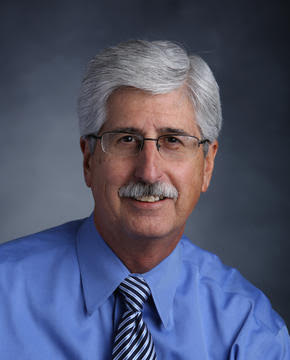
When it comes to the future of cancer treatment, it’s natural to hope for a single miracle cure or wonder drug. But cancer is complicated, to say the least, and so are the genetics surrounding it. As a result, that “moonshot” cure for cancer is likely to come in many different forms and variations.
In his 36 years at the University of Minnesota, Brian Van Ness has worked to advance this individualized approach to tackling cancer. His main focus is studying multiple myeloma, a cancer of the plasma cells. While myeloma treatment options have come a long way in recent years, the success of those treatments all depends on the person.
“A major problem in cancer, particularly in multiple myeloma, is that the standard treatments don’t work for everybody,” says Van Ness. “So we’re asking, ‘Why are some people resistant to therapy at the beginning of treatment? Why do others become resistant over time? And are they the same thing, or are they different?’”
To answer such complex questions, Van Ness uses complex genetic analysis. His lab developed cell line models to understand how different genes can influence disease progression and response to therapy. From there, the lab applies the results to the analysis of patient samples. Someday soon, this research could help oncologists use genetic biomarkers to choose the best therapy for each patient.
“Genetics is what makes you unique from everybody else,” says Van Ness. “The more we understand the underlying genetic makeup, the better able we are to say, ‘this therapy will be the most effective for this person, with the least amount of side effects.’”
The Human Genome Project took 13 years and around $3 billion in funding to complete. Two decades later, we have technology that does the same thing in about a week, for less than a thousand dollars. But today, we’re faced with a new challenge: How do we make sense of all this new information?
That’s where partnerships across institutions are essential. Currently, Van Ness is finishing up a National Cancer Institute project in collaboration with Mayo Clinic. Part of a broader effort to overcome drug resistance in multiple myeloma, Van Ness combines his expertise in tumor cell genome sequencing and modeling with Mayo’s clinical practice. The goal is to identify which tumors become resistant to proteasome inhibitors, a standard class of drugs used to treat myeloma, and which do not.
Moving genetic research from the lab into the cancer clinic requires teamwork from scientists, doctors and data analysts. “Some of my best friends are computer scientists,” says Van Ness. “They don't necessarily understand genetics and biology, but they understand complex data sets and machine learning.”
The patients also need to be part of the team—and Van Ness thinks that any good doctor would agree. “If you're going to expect more personalized medicine, you have to advocate for it and educate yourself about it. That can only benefit your treatment because now you have become a partner in it.”
As he prepares to retire next fall, Van Ness will leave the University with a CV that weighs in at 30 pages long. Along with his roles as researcher and professor, Van Ness has served as a department head, startup founder and CEO, board chair, consultant and more. But one of his favorite roles is being a mentor.
“I’ve mentored about 20 students who have earned their PhDs with me, and many of them have gone on to do bigger and better things than I’ve done. The main thing I did was to get them excited about science, teach them a little bit about the ways to do science and new ways to think about it.”
Van Ness has published nearly 200 papers, book chapters and reviews to date, presenting the work at national and international conferences. Despite all of his accomplishments, he’s quick to give credit where it’s due. “My research has advanced, in large part, because of the students, postdocs and technicians I’ve had the pleasure to work with.”
— Eve Daniels
RELATED LINKS
Molecular modeling of drug efficacy in multiple myeloma (video interview with Van Ness) https://www.youtube.com/watch?v=HJZfqSHTf-U
Can Doctors Predict Response to Multiple Myeloma Therapy? (Q&A and podcast with Van Ness) https://healthtree.org/myeloma/community/podcasts/Can-Doctors-Predict-Response-to